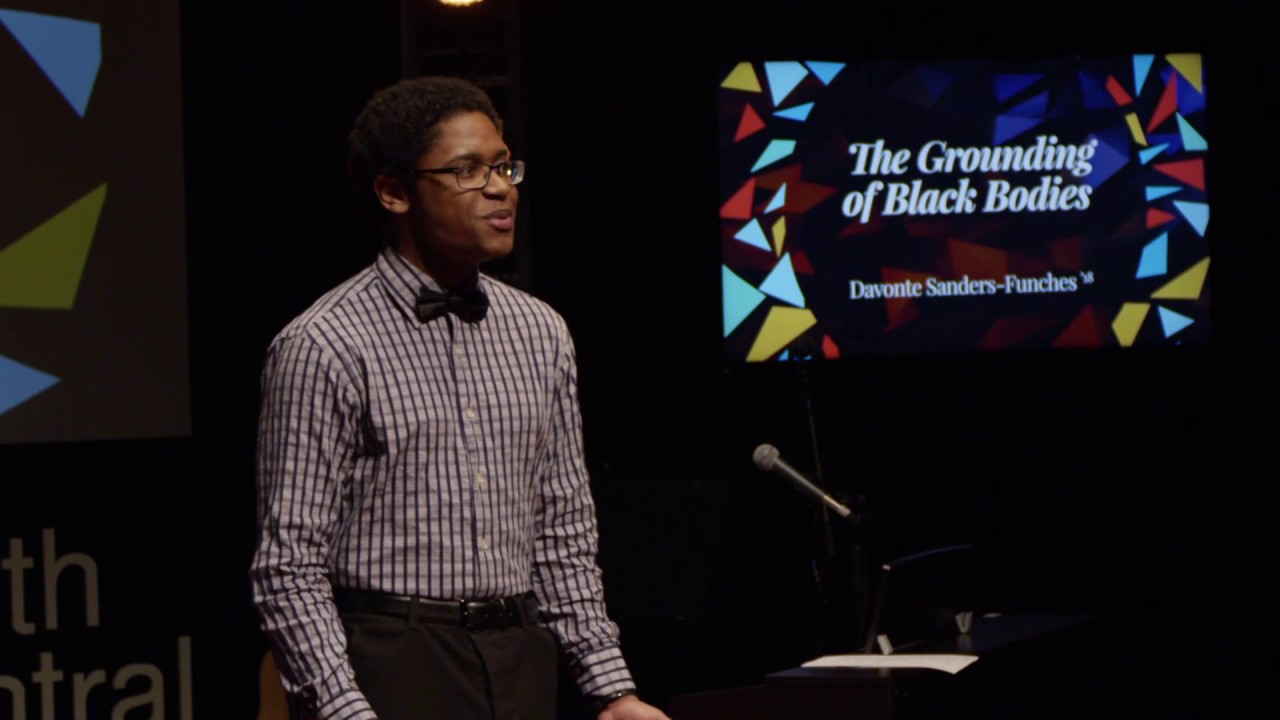Understanding The Importance Of Mental Health In The African American Community
However, it is vital to understanding the importance of mental health in the African American community, as it has a significant impact on individuals' personal and professional lives. Mental health is a crucial aspect of our overall well-being that often goes overlooked in many communities, including the African American community.
Author:Suleman ShahReviewer:Han JuMar 27, 20239.8K Shares235.6K Views

However, it is vital tounderstanding the importance of mental healthin the African American community, as it has a significant impact on individuals' personal and professional lives.
Mental healthis a crucial aspect of our overall well-being that often goes overlooked in many communities, including the African American community.
The lack of attention given to mental health in this community can be attributed to several factors such as systemic oppression, social stigma, and limited access to mental health resources.
This article aims to shed light on the importance of mental health in the African American community.
Addressing Mental Health In The Black Community
Mental health is a topic that is not discussed enough, and this is especially true when it comes to the Black community.
African Americans have historically faced systemic barriers to healthcare, including mental health care, and are often more likely to be underdiagnosed, misdiagnosed, and underserved when it comes to mental health services.
These barriers can have a significant impact on the Black community's mental health and well-being, resulting in higher rates of mental health disorders and a lack of access to the care and resources needed to manage them.
One of the biggest reasons why mental health is not adequately addressed in the Black community is the cultural stigma surrounding mental health.
Many Black people view mental health issues as a sign of weakness, and they are hesitant to seek treatment out of fear of being labeled as crazy or weak.
Additionally, the Black community often faces significant stressors related to race-based discrimination, economic inequality, and intergenerational trauma, which can also contribute to mental health issues.
To address mental health in the Black community, we must start by breaking down these cultural barriers and promoting mental health as a vital aspect of overall well-being.
It's essential to encourage open and honest conversations about mental health in the Black community and promote mental health resources that cater to Black individuals' unique needs.
Additionally, it's critical to work to increase access to mental health resources and break down systemic barriers to care.
This includes advocating for increased funding for mental health programs, educating healthcare providers on cultural competency, and working to address the systemic inequalities that contribute to disparities in mental health outcomes.
The Stigma Of Mental Health In The Black Community
The stigma surrounding mental health in the Black community is a significant issue that often goes unaddressed.
This stigma is based on a combination of cultural, historical, and systemic factors, all of which have contributed to a lack of awareness and understanding of mental health issues in the Black community.
One of the biggest contributors to the mental health stigma in the Black community is the idea that seeking mental health care is a sign of weakness.
In many Black communities, there is a belief that mental health issues should be kept hidden, and those who seek treatment are often seen as being weak or unable to cope with life's challenges.
This stigma can prevent individuals from seeking the help they need, and as a result, their mental health issues may go untreated, leading to more severe problems down the road.
Another factor that contributes to the mental health stigma in the Black community is the historical mistreatment of Black individuals in the mental health system.
For decades, Black individuals were subjected to discriminatory practices and mistreatment in mental health institutions, which created a deep-rooted distrust of the mental health system.
This legacy has led to a lack of trust in mental health providers and a reluctance to seek treatment in the Black community.
Understanding The Importance Of Mental Health In The African American Community And Black History
Black historyis filled with stories of resilience, strength, and overcoming incredible adversity. However, it's also a history of trauma, discrimination, and systemic racism, all of which can have a significant impact on mental health.
For Black individuals, their history and experiences can impact their mental health and well-being, creating unique challenges and barriers to accessing mental health care.
The legacy of slavery, segregation, and discrimination has created a deep-rooted intergenerational trauma that impacts the mental health of Black individuals.
Many Black individuals carry the weight of this trauma with them, leading to issues like anxiety, depression, and post-traumatic stress disorder.
Additionally, the systemic racism that has persisted throughout history can lead to feelings of hopelessness and despair, further contributing to mental health issues.
Another factor that impacts the mental health of Black individuals is the lack of representation in mental health care.
Due to a lack of diversity in mental health professionals, many Black individuals feel that their experiences and concerns are not being heard or understood.
This lack of representation can create a barrier to accessing mental health care, as Black individuals may not feel comfortable seeking help from providers who they feel cannot relate to their experiences.

Mental health within the black community | Davonte Sanders-Funches | TEDxNorthCentralCollege
African Attitudes To Mental Illness
Mental illness is a complex issue that is often stigmatized in many cultures. In African societies, attitudes toward mental illness are diverse and vary widely depending on the community's cultural beliefs and values.
Generally, the attitudes towards mental illness in African communities are often influenced by traditional beliefs, spiritual and religious beliefs, and cultural norms.
In many African communities, traditional beliefs hold that mental illness is caused by supernatural or spiritual forces, such as ancestral spirits or witchcraft.
This belief can lead to a range of harmful practices, such as exorcism, herbal remedies, or even violence against those experiencing mental health problems.
These traditional beliefs can sometimes prevent individuals from seeking professional help and contribute to a lack of understanding and knowledge about mental health.
Religious beliefs also play a significant role in shaping African attitudes toward mental illness. Some religious beliefs view mental illness as a punishment or a result of sin.
This belief can create feelings of shame and guilt, leading to the stigmatization of mental health issues.
However, many religious communities also provide support and comfort to those struggling with mental health issues, promoting the idea of seeking help and treatment.
People Also Ask
What Is The Most Common Mental Health Issue In The African American Community?
Depression is the most common mental health issue in the African American community.
What Are Some Cultural Factors That Contribute To Mental Health Disparities In The African American Community?
Cultural factors that contribute to mental health disparities in the African American community include stigma around mental health, lack of access to mental health services, and mistrust of the healthcare system.
How Can We Address Mental Health Stigma In The African American Community?
We can address mental health stigma in the African American community through education, community outreach, and promoting mental health resources that cater to the unique needs of Black individuals.
What Role Does Historical Trauma Play In Mental Health Disparities In The African American Community?
Historical trauma, such as the legacy of slavery and systemic racism, can contribute to mental health disparities in the African American community by creating intergenerational trauma and feelings of hopelessness and despair.
Conclusion
In conclusion, mental health is an essential component of overall health, and it is imperative to recognize its importance in the African American community.
The social stigma attached to mental health, coupled with systemic barriers to mental health resources, has contributed to a lack of attention given to mental health in this community.
It is time to break this stigma and understanding the importance of mental health in the African American community. By doing so, we can help individuals live happier, healthier, and more productive lives, and improve the overall well-being of the community as a whole.
Let us work together to raise awareness of mental health issues and promote a culture of self-care and self-love.
Edit paragraph. Please delete this text and add your content here.

Suleman Shah
Author
Suleman Shah is a researcher and freelance writer. As a researcher, he has worked with MNS University of Agriculture, Multan (Pakistan) and Texas A & M University (USA). He regularly writes science articles and blogs for science news website immersse.com and open access publishers OA Publishing London and Scientific Times. He loves to keep himself updated on scientific developments and convert these developments into everyday language to update the readers about the developments in the scientific era. His primary research focus is Plant sciences, and he contributed to this field by publishing his research in scientific journals and presenting his work at many Conferences.
Shah graduated from the University of Agriculture Faisalabad (Pakistan) and started his professional carrier with Jaffer Agro Services and later with the Agriculture Department of the Government of Pakistan. His research interest compelled and attracted him to proceed with his carrier in Plant sciences research. So, he started his Ph.D. in Soil Science at MNS University of Agriculture Multan (Pakistan). Later, he started working as a visiting scholar with Texas A&M University (USA).
Shah’s experience with big Open Excess publishers like Springers, Frontiers, MDPI, etc., testified to his belief in Open Access as a barrier-removing mechanism between researchers and the readers of their research. Shah believes that Open Access is revolutionizing the publication process and benefitting research in all fields.

Han Ju
Reviewer
Hello! I'm Han Ju, the heart behind World Wide Journals. My life is a unique tapestry woven from the threads of news, spirituality, and science, enriched by melodies from my guitar. Raised amidst tales of the ancient and the arcane, I developed a keen eye for the stories that truly matter. Through my work, I seek to bridge the seen with the unseen, marrying the rigor of science with the depth of spirituality.
Each article at World Wide Journals is a piece of this ongoing quest, blending analysis with personal reflection. Whether exploring quantum frontiers or strumming chords under the stars, my aim is to inspire and provoke thought, inviting you into a world where every discovery is a note in the grand symphony of existence.
Welcome aboard this journey of insight and exploration, where curiosity leads and music guides.
Latest Articles
Popular Articles
